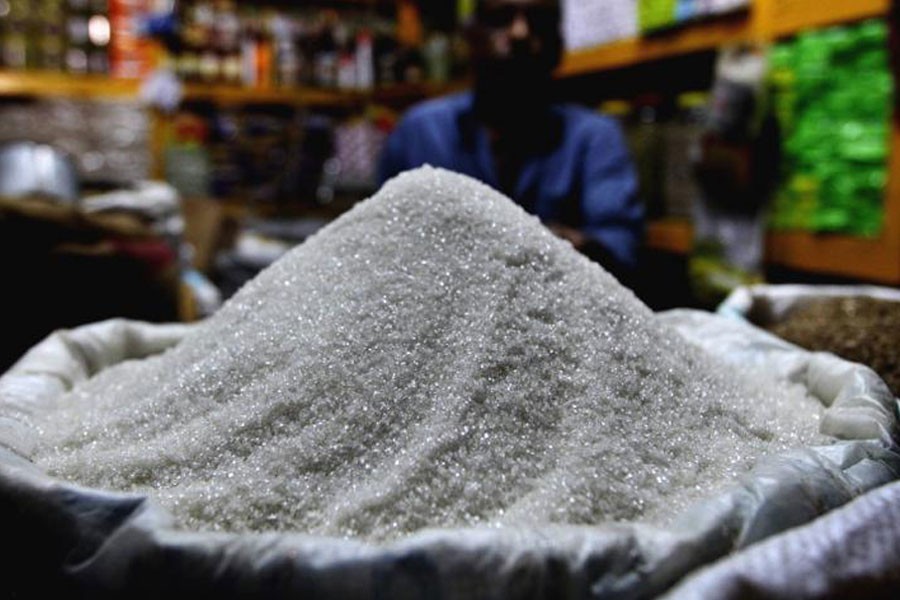The list of pricier essentials is quite a long one. The media, these days, have stopped describing the price rise as new records, for readers would not like the repetition of the same headlines day after day. Now they prefer putting the new prices of the unique items straight in the headlines of the news stories. Some newspapers just say, 'prices have gone up again'. Edible oil prices went up by 100 per cent and rice between 25 per cent and 35 per cent in a year. Lately, the egg is the item that has drawn all attention, because of an almost 100 per cent price rise in a matter of days. Following a tentative decision announced by the commerce ministry to import eggs, the prices of egg, however, have started declining. But often the import of many items has proved ineffective against price rises. Rice is a case in point.
Sugar is one daily essential that deserves the attention of policymakers. The prices of this item also have been creeping up for months beyond the notice of many. A kilogram of sugar now costs between 95-110 taka, a notable rise. Excessive sugar consumption is bad for health, no doubt. But it is an item that cannot be dropped from the list of essentials, either. All are aware of the reasons. But should sugar cost so much in Bangladesh when options are there to cut its price and help lessen the enormous burden imposed on the consumers?
One option could be a cut in duty and taxes imposed on imported sugar. According to a report published in this paper on Friday, the import cost of sugar now comes to around Tk 60 a kg. The government is imposing duties and taxes worth Tk.31 on it. The government might think of lowering the duty and tax rates for the greater benefit of general consumers. The second option---revival of the state-run sugar mills, though a time-consuming move, might prove rewarding in the long run. The estimated demand for sugar in the country is around 2.0 million tonnes and only 25,000 tonnes are produced locally. Private millers meet the rest of the demand by refining imported raw sugar.
Many state-owned sugar mills are now closed and some are on the verge of closure because of long neglect, mismanagement and corruption of all sorts. Their cost of production is abnormally high because of soaring overhead expenditures and dilapidated conditions of machinery and equipment. Most state-owned sugar mills also survive on government subsidies. These mills might now be enjoying the high price of sugar, but the heyday is likely to be short-lived. The government should think loudly about modernising these mills under a revamped management. Ensuring dynamic management, however, would be a daunting task. Divestment could be an effective alternative. But the process has not worked well in Bangladesh, particularly with state-owned enterprises occupying an extensive land area. The private owners, most often, in breach of the agreement signed with the government, either closed down the mills and factories or used their land for different purposes. Under the circumstance, the government needs to examine the pros and cons before deciding on better utilisation of state-owned sugar mills to help reduce dependence on imported sugar.


